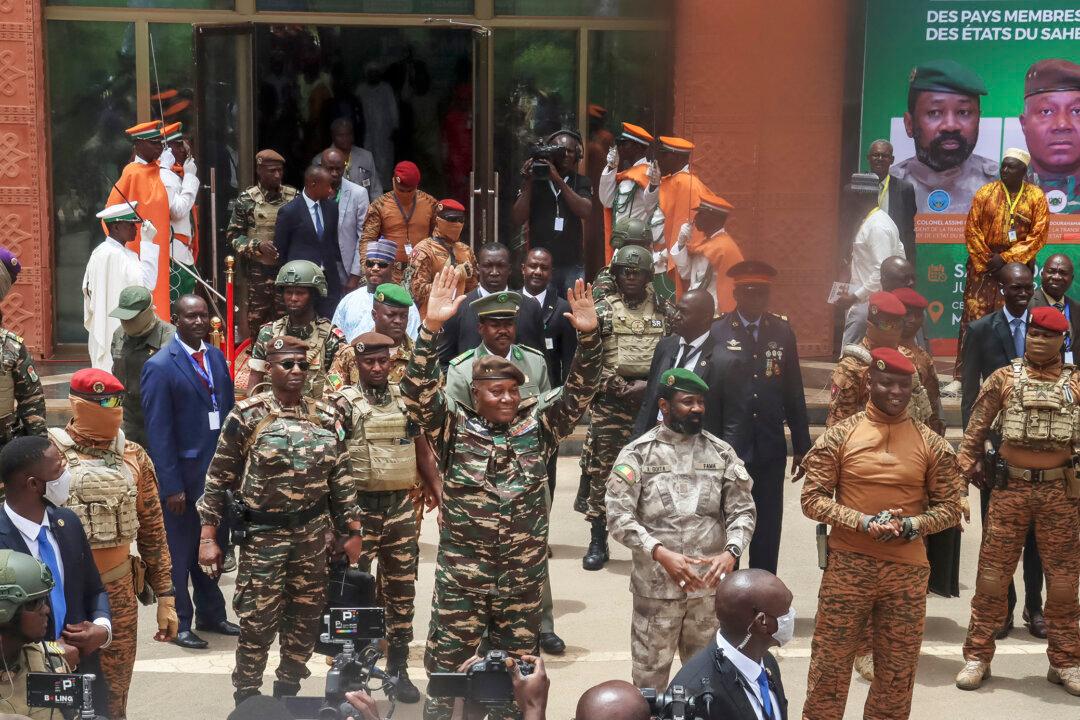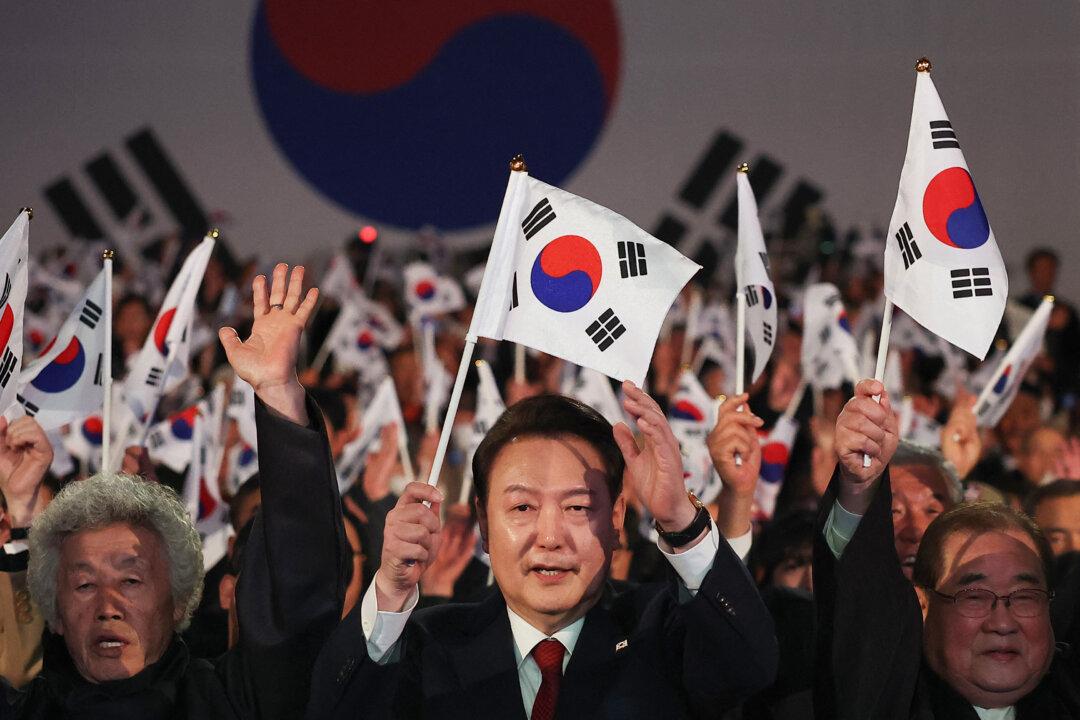The expulsion of the French ambassador to Niger, Sylvain Itté—after barely a year in office—on Sep. 27 marked the denouement of several weeks of standoff between Paris and the new junta in power in the West African state.
Under a joint escort of a French special forces commando and Nigerien gendarmes, Mr. Itte and six of his colleagues left his residence in the Niger capital of Niamey at about 4 a.m. for a military base where they boarded a plane for Paris.





